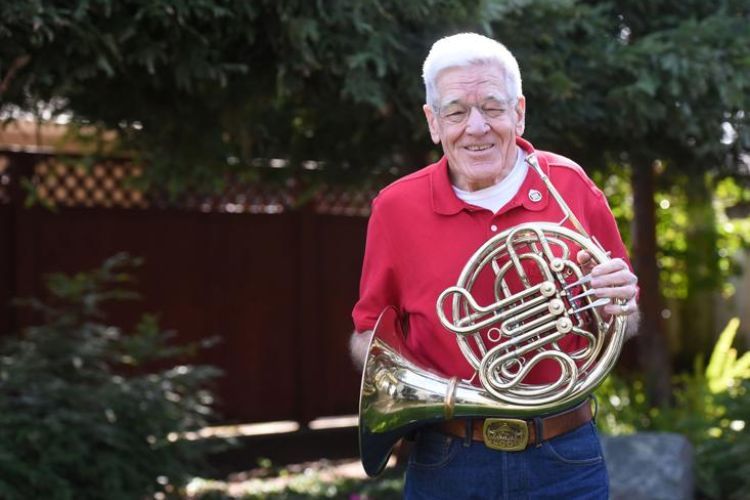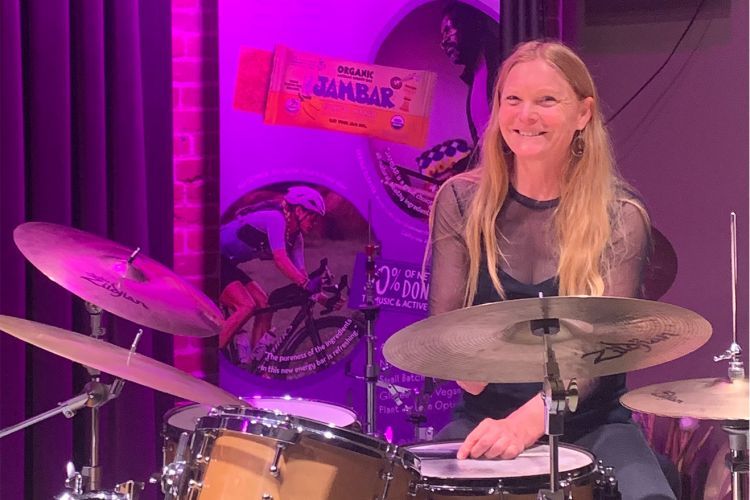Breadcrumb
Pacific’s Conservatory welcomes Philip Ewell as virtual scholar in residence for 2020–21

Renowned music theorist will give six talks during 2020–21 academic year
University of the Pacific’s Conservatory is honored to announce that Philip Ewell will serve as the Conservatory’s Virtual Scholar in Residence for 2020–21. Pacific’s invitation is extended in light of years of research culminating in Ewell’s essential plenary talk “Music Theory’s White Racial Frame” at the 2019 Annual Meeting of the Society for Music Theory, his subsequent blog articles entitled “Confronting Racism and Sexism in in American Music Theory,” and his long article “Music Theory and the White Racial Frame,” which recently appeared in Music Theory Online. His explorations of these topics were heralded immediately as candid discussions of the ways in which American music school settings have perpetuated systemic racism, sexism, and other forms of discrimination.
As virtual scholar in residence, Ewell will give six talks at Pacific over the course of the 2020–21 academic year, the overarching theme of which is entitled “Confronting Racism and Sexism in the Music Academy.”
“Dr. Ewell’s residency at Pacific will help our ongoing work: to change music curricula and music school culture. Pacific’s Conservatory believes we must ask ourselves, daily, whose music do we study, and why?” said Peter Witte, dean of Pacific’s Conservatory. “We recognize that if we are to fully prepare students to shape the future, we must center the music, skills, and cultures that represent the majority of students in American schools today and tomorrow. We’ve done important work in the last five years, often guided by faculty and led by our students, who created symposia on representation in music and entertainment fields, released our first hip hop EP, launched Pacific’s Mariachi Ocelotlan, Pacific Heavy Ensemble, and our contemporary music ensemble 28/78. These are vital steps. Dr. Ewell’s residency at Pacific takes place in context of the clear systemic bias that the Black Lives Matter marches rightly protest, and that the coronavirus pandemic and economic collapse amplify. That he will lead essential conversations at Pacific, which is among the most diverse music units in the nation and situated in one of America’s most diverse regions, is something we celebrate.”
Pacific’s Andrew Conklin, assistant professor and program director of music theory and composition, planted the seeds for Ewell’s residency in November 2019, immediately after his nationally celebrated plenary at the Society for Music Theory’s annual meeting. Pacific’s faculty recognized that Ewell’s work aligned directly with the goals the Conservatory established "to make Pacific a destination for musicians who believe excellence has many meanings in the 21st Century, and to be a conservatory that measure itself not by whom we exclude, but by whom we include."
About Philip Ewell
Philip Ewell is an associate professor of music theory at Hunter College of the City University of New York, where he serves as director of graduate studies in the music department. His specialties include Russian music and music theory, Russian opera, modal theory, and critical-race studies. He received the 2019–20 “Presidential Award for Excellence in Creative Work” at Hunter College, and he is the “Susan McClary and Robert Walser Fellow” of the American Council of Learned Societies for 2020–21. As a cellist, he’s played concerts in North America, Europe, and Asia, under the batons of conductors such as Gustav Meier and Pierre Boulez, in master classes for musicians such as Janos Starker and Glenn Dicterow, and in backup bands for artists such as Johnny Mathis and Stan Getz. In 2020–21, as a result of his ACLS award, he will work on a monograph combining race and feminist studies with music and music theory.
About Ewell’s Residency at Pacific
Confronting Racism and Sexism in the Music Academy
There can be no question that racism and sexism, and their structural and institutional aspects, have become hot-button issues in contemporary American society. Three concurrent tragedies—coronavirus, the killing of George Floyd, and the collapse of the U.S. economy—have forced us all to reexamine our most basic commitments to society, and to one another. We in music feel this commitment, perhaps, most keenly of all, since ours is an art deeply imbued with our shared humanity. In this and future talks, Ewell examines how power plays out in the music academy in hopes of making it more inclusive. Not surprisingly, this power has, historically, resided almost exclusively with those who identify as both white and male in the United States. This simple fact, often unacknowledged, has created systems of music study that are unfair and exclusionist. Only through confronting this fact head on will we begin to see the positive change that we all deserve.
Schedule:
The talks scheduled for the fall will be held via Zoom, dates and times will be published by August 1, 2020.
Fall Semester, 2020
- September, 2020: Conservatory Convocation Keynote: Racism, I
- October, 2020: Racism, II
- November, 2020: Sexism
Spring Semester, 2021
- February, Antisemitism
- March, Discrimination Against LGBTQIA +
- April, The Way Forward





